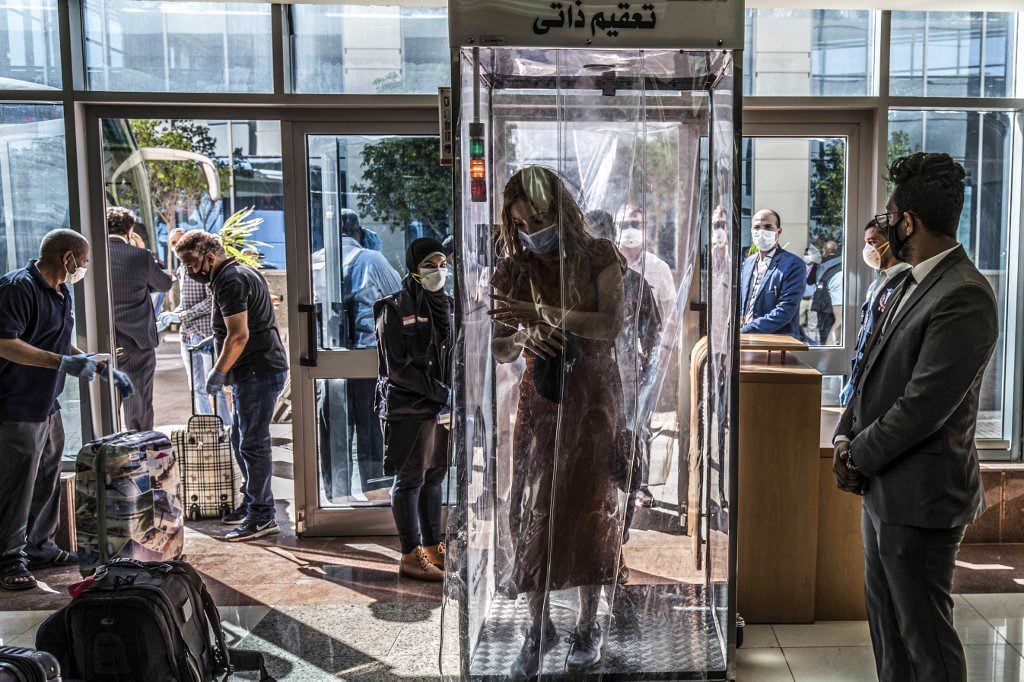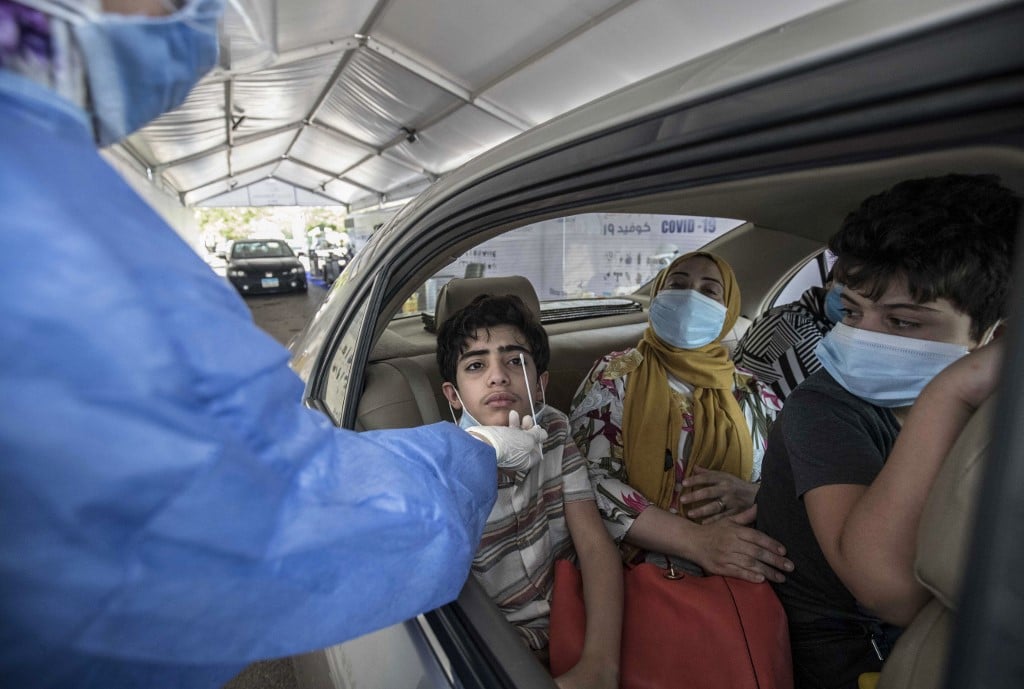
By: Ahmed Abdeen
The outbreak of the new Corona pandemic, Covid-19, was a test for all countries around the world; the governments, the civil societies and the people on the extent of their preparedness during a wide health emergency. It also placed governments under a microscope on the degree of their sincerity in working to preserve the lives of their citizens. Unfortunately, in the case of Egypt and its performance while facing this unprecedented pandemic, what we are left realizing was that this country can only be characterized by irresponsibility and negligence at a government level along with the weakness and fragility of a civil society and the population as a whole.
At the beginning of the crisis and with the start of the outbreak and the spread of the pandemic in the world, the Egyptian government preferred the policy of denial, claiming that there were no cases inside Egypt. During the month of February 2020, the French Ministry of Health announced that two cases coming from Egypt were confirmed to be infected with the virus after a tourist visit, and shortly after the number increased to 6 cases coming from Egypt and the emergence of other cases in Canada and Taiwan, all of which were returning from Egypt. The Egyptian government strongly denied the existence of any cases except for only one case that had been cured. Egypt had a limited number of medical testing kits and it followed a very weak protocol that can only be summarized in one statement “The fewer the number of tests, the fewer the number of cases.”
The government hesitated to impose precautionary measures to reduce the spread of the pandemic, such as closing schools, implementing curfews and general closures. It delayed the closing of the airports until the 19th of March 2020 and were long overdue in the suspension of prayers in mosques and churches. Once implemented, all too quickly were these measures abandoned and the country returned to life as usual denying the existence of the pandemic. This came at a time when countries all over the world tightened their measures as they faced their second wave of infections and increase in cases. While the Egyptian government, continued its policy of not increasing testing but instead decided to use the testing kits as a form of trade.
At a time when the world’s governments praised their medical teams for their sacrifices in the face of the pandemic, Egypt entered into consequent battle with doctors and the medical industry, in response to their accusation that the government was negligent in facing the pandemic. Unlike the rest of the world leaders who stood by and praised their medical teams, Prime Minister, Mostafa Madbouly, blamed them and held them responsible for the exacerbation of injuries and deaths.
Madbouly said, ”We have observed absence and inconsistency from the medical staff in some governorates and places, and this has led in one way or another to an exacerbation of injuries or deaths, and for this we have been very keen to direct the governors and the Ministry of Health to take all measures to ensure consistent work by all medical staff, and for those who are absent and do not work accordingly they will face legal charges.”
Those words had a severe impact on medical care professionals and on the Egyptians. The doctors and nurses could be seen sacrificing their lives in the face of the pandemic while Egypt’s government ignored the needs of its people, putting lives at risk as tens of thousands of cases and deaths were reported, and people could be heard screaming outside hospitals due to the lack of intensive care beds, respirators and medical equipment.
After Madbouly’s speech, tens of thousands of posts, photos and hashtags thanking the doctors spread on social media under the slogan “Thank you, Egyptian Doctors, you are in our Hearts,” in appreciation of their efforts facing the pandemic.

The Medical Association issued a statement following Madbouly’s speech, in which it expressed its rejection of what he said, pointing out the lies made by the government and its officials, about the reasons for the worsening of the pandemic, which is actually attributed to the lack of capabilities, lack of medical supplies, and severe lack of beds in the intensive care unit.
The statement reminded the Prime Minister of the sacrifices made by doctors and medical staff in the face of the pandemic, in extremely difficult circumstances, including a shortage of protective equipment and the continuous attacks on medical staff. As well as making it known that the government has yet to issue a law criminalizing attacks on hospitals and medical personnel, in addition to administrative arbitrariness and lifting the ban on mandatory leave.
Some followers reminded the Prime Minister of the constant criminalization of anyone criticizing any governmental institution and the judiciary system. Dozens of people have been thrown into prisons as a result of their criticism of the performance or behaviour of these institutions at a time when the system blames doctors and holds them responsible for their failure.
This is in addition to the arrest of a number of doctors, including union leaders, because of their complaints of the lack of medical supplies, beds and the overall shortcomings of the government towards its own people.
As its medical system suffered and failed its own people, the Egyptian government offered a helping hand and sent medical aid shipments to some of the richest and more capable countries such as Italy, China and the United States as their countries fought the pandemic. The Medical Association released petitions calling on the government to release the doctors that had been detained.
In the face of the government and its poor performance handling the pandemic, several popular initiatives came out to confront the pandemic, including the initiative to manufacture 5,000 respirators to fill the deficit and prepare for the intensification of the crisis.
There was also the initiative launched by the January 25 Hospital Foundation to convert itself to an isolation hospital and its contribution to sterilization procedures, and a plan to prepare and deliver meals for the infected individuals, in addition to other initiatives launched by civil and non-governmental organizations and institutions, including the initiative of engineer Mamdouh Hamza, the global consultant, to establish field hospitals, as well as engineer Akram Ismail, a founding member of the Live and Freedom Party, but they were met with complete disregard by the state.
In an interview with Fanack, Secretary General of the Giza Medical Association, Khaled Amin, said that “government spending on the health sector is much less than what Egypt needs and far from what we might call humane health care. We have faced these issues during regular times let alone being faced with a pandemic. We have repeatedly requested of the government to allocate funding to the medical sector, but it has fallen on deaf ears.”
Amin added, “We are in dire need of all civil initiatives, not now but rather months ago. We needed to prepare isolation facilities completely far from hospitals and clinics so that they do not turn into hotbeds of infection, which would represent a disaster.
For example, the medical staff that was infected by Covid-19 at the Institute of Oncology, is considered a tragedy because its patients and those who frequent it are those with cancer who can be considered almost without immunity. The infection among them will be tragic and painful, so we are in dire need of all government and civil support and initiatives, and more stringent precautionary measures must be taken. The economy should not be weighted to scale against the souls of people.


